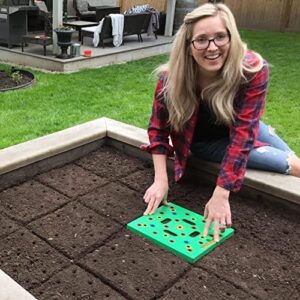In today’s world, it’s becoming increasingly important to think about our impact on the environment. One way to do this is through sustainable gardening. By making eco-friendly choices in our yards and gardens, we can help protect the planet for future generations.
Sustainable gardening is all about working with nature, rather than against it. This means using natural, organic methods to care for our plants and soil, and creating a healthy, biodiverse ecosystem in our own backyards.
One of the easiest ways to make your yard more eco-friendly is to start a composting project. This can be as simple as saving your kitchen scraps and yard waste in a bin or pile, and letting them break down naturally into nutrient-rich compost. By using compost in your garden instead of chemical fertilizers, you can improve soil health, reduce waste, and support a thriving ecosystem of beneficial microbes and insects.
Another sustainable gardening project to consider is rainwater harvesting. By collecting rainwater from your roof in barrels or tanks, you can reduce your reliance on municipal water sources and provide a free and natural source of irrigation for your plants. Rainwater is soft and free of chemicals, making it a great choice for watering your garden.
Creating a wildlife-friendly garden is also a great way to support biodiversity and contribute to a healthy ecosystem. By planting native plants, providing habitat for beneficial insects and animals, and avoiding the use of pesticides, you can create a welcoming environment for pollinators, birds, and other wildlife in your yard. Not only does this benefit the environment, but it can also add beauty and interest to your garden.
Choosing sustainable materials and practices for hardscaping projects is another important aspect of eco-friendly gardening. Consider using recycled or reclaimed materials for paths, patios, and other hard surfaces in your yard. These materials not only reduce waste and save resources, but they can also add a unique and creative touch to your outdoor space.
One of the keys to successful sustainable gardening is to work with the natural environment and climate of your region. By choosing plants that are well-suited to your local conditions, you can reduce the need for water, fertilizers, and pesticides, and create a garden that thrives with minimal input. Native plants are a great choice for sustainable gardening, as they are adapted to the local climate and can provide important habitat for wildlife.
Incorporating edible plants into your garden is another sustainable gardening project that can benefit both you and the environment. By growing your own fruits, vegetables, and herbs, you can reduce your reliance on store-bought produce, support local food systems, and enjoy the fresh taste of homegrown food. Plus, growing your own food can be a rewarding and satisfying way to connect with nature and reduce your carbon footprint.
Creating a sustainable garden is an ongoing process that requires patience, experimentation, and a willingness to learn. By starting small and making gradual changes to your yard and garden, you can make a big difference in the health of the planet and the well-being of future generations. Whether you’re a seasoned gardener or just starting out, there are endless opportunities for eco-friendly projects in your yard that can help create a greener and more sustainable world for all.






